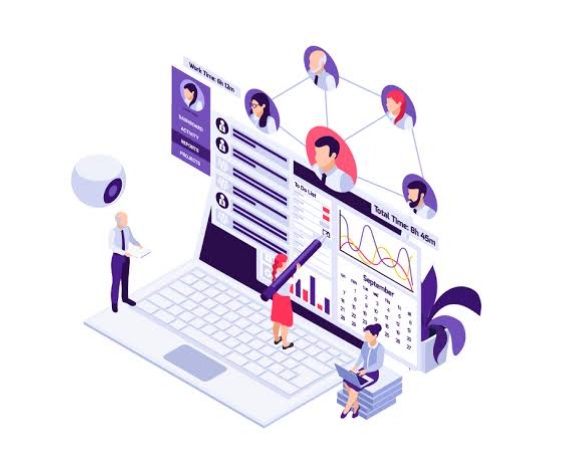In this digital age, software is a vital part of running any kind of business. So much so that Statista estimates that companies worldwide use an average of 130 software as a service (SaaS) applications in 2022. And this figure is expected to increase as technology advances and becomes more available to businesses.
Now, every software on the market comes with some guidelines on use and distribution, which is binding under the law. This is known as a software license. Basically, a software license tells you what you can and can’t do with the software, including conditions for use and for how long you can use it.
Staying on top of one or two licenses is easy. However, keeping up with multiple software licenses, which is usually the case, is hard work. And as your organization grows and expands, it will undoubtedly acquire new software, adding to the challenge.
Here’s where a software license tracking service comes in.
What is License Tracking?
Software license management or tracking is the process of proactively identifying and controlling available, deployed, and unused software within your organization. It basically helps you know where and how different software products are being used in your company.
While this tracking process can be done manually with, say, Excel spreadsheets, this is often cumbersome and hard to keep up with. Efficient license tracking requires specialized tools or software. All that said, companies usually go for third-party services for their software tracking needs as it is easier, faster, affordable, and a lot more efficient.
So, how exactly does your organization benefit from software license tracking and management?
1. Saves You Money & Increases Your Profits
As an organization, you have probably purchased several licenses for the software you use daily. But in the end, it’s pretty hard to tell what software is actually being used, when and how it is used, and by whom. License tracking helps get on top of all these things. Basically, it gives you a better understanding of all your licenses and how they are being used in the organization.
So, you have a clearer view of your resource utilization, including where there’s wastage or inefficiencies. For instance, you could have one or more software applications that are actually not being used, therefore losing you money in maintenance and renewals. Or you could have programs being used wrongly or inadequately. In other cases, you may be maintaining two or more software which can do the same work.
With this knowledge, you can reallocate some software where it’s most needed, thereby increasing efficiency, revenue, and, consequently, profits. Tracking can also help you avoid buying or maintaining unnecessary software. So, you can stop buying it altogether, saving you significantly in terms of expenses. Or, you can downgrade existing licenses if you don’t really need some premium features.
2. Ensures Compliance
Under US law, all software is copyrighted, whether or not it is indicated. That is, unless it is developed by the government, in which case, it can’t be copyrighted. Now, since all the software you’re using carries copyright, it means you are obliged to stick to the copyright regulations it comes with. Otherwise, you might find yourself liable, legally and financially, both of which can hurt your company immensely.
But if you’re not tracking use and distribution, you can’t tell if the guidelines are really being followed across departments and teams. And in the case of a software audit, you may end up paying hefty fines, not forgetting to face other legal risks.
A license tracking/ management service does all the heavy lifting for you. That is, ensuring you are complying with all license agreements at all times. And, consequently, complying with the law.
3. Allows You to Budget & Forecast Better
License tracking is a huge part of understanding your software usage and needs. With a tracking service, you can easily generate reports that cover all the software you are using and to what extent. You essentially get a list of all your software licenses, along with important information such as type of license, number of purchases, allocations, and so on.
More importantly, you know what software you won’t need to buy again or renew in the coming financial year. This can make budgeting for your organization a lot easier. And that’s because you have a clear idea of how many software licenses you currently have and how many you will need to purchase or continue maintaining in the future. Keep in mind that accurate forecasting is a key part of the budgeting process.
4. Automates License Management Tasks
Among other things, a software license dictates how long you can use it before renewing. In this case, continuing to use the software after the allowed period has lapsed is not only illegal but also very risky. Not forgetting, the application may stop working as intended after the deadline, which can affect your organization’s operations.
Now, given your organization probably uses dozens of software, all with different renewal dates, you can’t really expect to remember it all. But then you don’t want to find yourself in a situation where you forgot to renew a license, and it expires without you knowing. License tracking and management allow you to automate some essential tasks that would otherwise be a headache.
You can stay on top of expiry dates as well as renewal deadlines, approvals, and other license-related needs of the different software your organization uses for daily operations.
Implement Software License Tracking Today
If you use multiple software in your business operation, license tracking is definitely a key task you want to stay on top of. By tracking your software licenses, you save money, time and increase your organization’s overall efficiency. More importantly, you stay compliant, avoiding legal and financial repercussions down the line. The good news is you don’t have to do the tracking yourself, which requires time, skill and tools. Instead, you can have a specialized service handle it for you.
